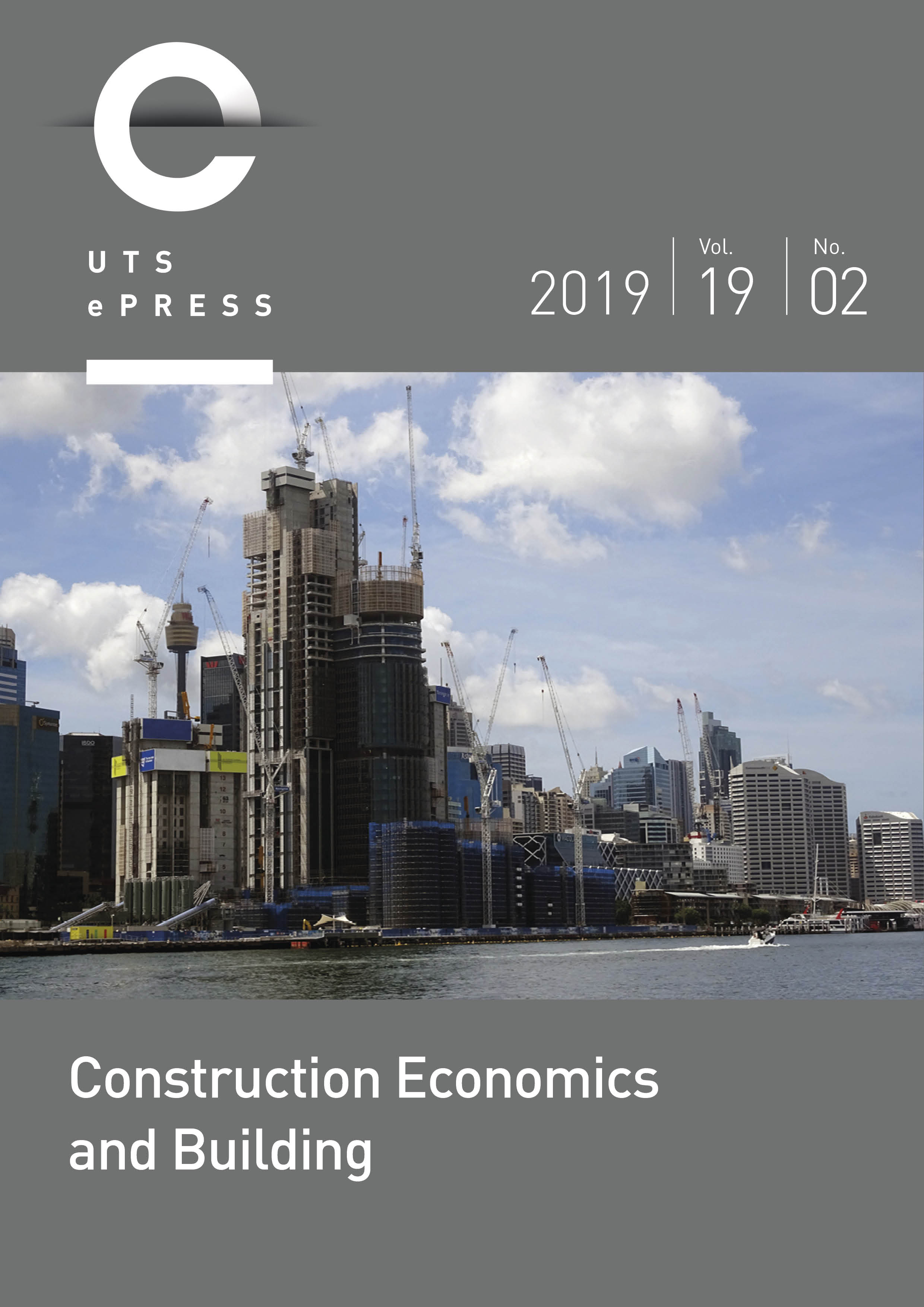Incentivising innovation in the construction sector: the role of consulting contracts
Main Article Content
Abstract
The issue of whether contracts promote innovation and sustainability is an important but overlooked aspect for achieving energy and environmental targets, as well as for creating smart and sustainable cities. In this article, based on the principle/agent problem and Holmström and Milgrom’s work on optimal contracts it is argued that the current general conditions of architectural and engineering consulting agreements in Sweden (ABK 09)—a standard type of contract often used in developer/consultant relations—may not incentivize choices that support the long-term goals of society. Furthermore, although this exploratory study specifically analyses a Swedish standard contract, the question of how contractual incentive structures can optimize real-world performance is a general one, and thus the article’s findings have general applicability. This exploratory study also points to further research into how contractual structures impact climate-neutral buildings. In this way, Swedish consultants who use ABK 09 are incentivized to include low-risk, well-proven, and widely used technologies in order to minimize risks for themselves. This study contributes to resolving this dilemma by suggesting how ABK 09 could be restructured to change the balance between incentives and risk and incentivize innovation and sustainability. As mentioned above, the current study operates at a theoretical level. It discusses six possible changes that would better align the contract with the societal goals of innovation and sustainability.
Article Details
Section
Authors who publish with this journal agree to the following terms:
a) Authors retain copyright and grant the journal right of first publication with the work simultaneously licensed under a Creative Commons Attribution License that allows others to share and adapt the work with an acknowledgement of the work's authorship and initial publication in this journal.
b) Authors are able to enter into separate, additional contractual arrangements for the non-exclusive distribution of the journal's published version of the work (e.g., post it to an institutional repository or publish it in a book), with an acknowledgement of its initial publication in this journal.
c) Authors are permitted and encouraged to post their work online (e.g., in institutional repositories or on their website) prior to and during the submission process, as it can lead to productive exchanges, as well as earlier and greater citation of published work (See The Open Access Citation Advantage Service). Where authors include such a work in an institutional repository or on their website (ie. a copy of a work which has been published in a UTS ePRESS journal, or a pre-print or post-print version of that work), we request that they include a statement that acknowledges the UTS ePRESS publication including the name of the journal, the volume number and a web-link to the journal item.
d) Authors should be aware that the Creative Commons Attribution (CC-BY) License permits readers to share (copy and redistribute the work in any medium or format) and adapt (remix, transform, and build upon the work) for any purpose, even commercially, provided they also give appropriate credit to the work, provide a link to the license, and indicate if changes were made. They may do these things in any reasonable manner, but not in any way that suggests you or your publisher endorses their use.
